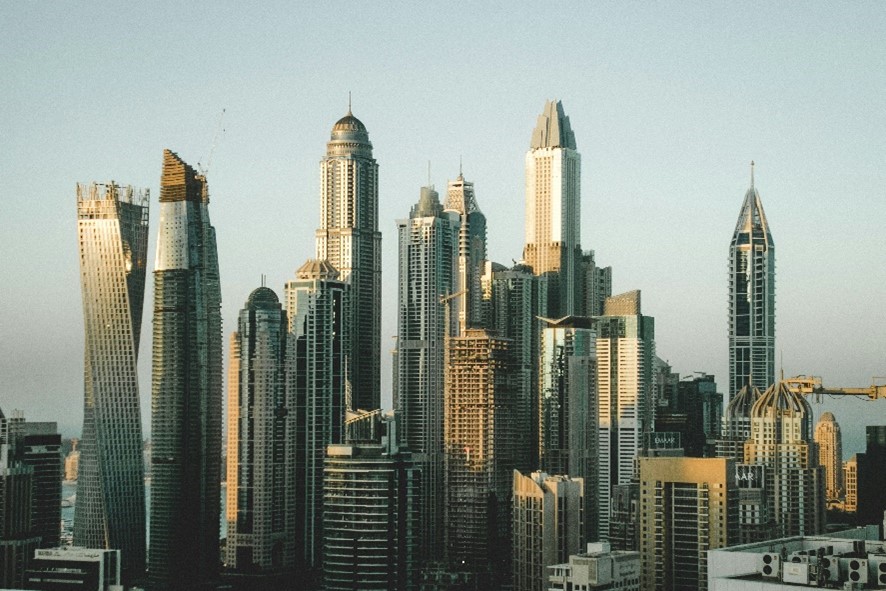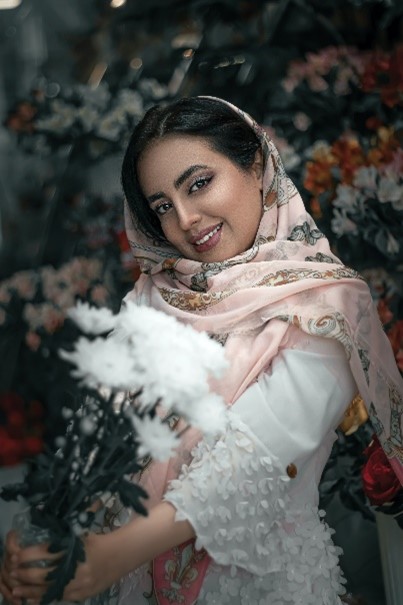We have extensive expertise in working with clients, retailers, brands across the Middle East and have personal experience of living in the region, thereby understanding first-hand the culture, the beauty industry, retailers and what consumers are looking for.
According to Statista, The UAE personal and beauty care market was valued at US$1,242.00m in 2023, it is anticipated to grow by -1.54% (CAGR 2023-2028), with the largest sector of the market being personal care which accounts for $557.30m in 2023.
The Middle East is experiencing a significant expansion due to the growing purchasing power of local consumers. Powered by digitalisation, the region, especially the Gulf countries, offer plenty of opportunities for growth. Rising disposable incomes and overall rising wealth, particularly amongst the younger urban middle class, also bring prospects for value-added beauty products that emphasize health and well-being.

The cosmetics and skincare areas dominate the Middle East Beauty and Personal Care Market. Makeup products, including lipsticks, eyeliners, and foundations, are particularly popular among consumers who seek to enhance their features. In skincare, there is a rising demand for products that address specific concerns, such as anti-aging, hydration, and sun protection.
Consumer Preferences:
The Middle East has also witnessed a shift in beauty trends, influenced by a blend of traditional practices and global beauty influences. Consumers in the region are embracing a more modern approach to beauty, incorporating skincare routines, makeup application, and hair care regimes into their daily lives. Millennials are the fast-growing customer demographic for luxury cosmetics, owing to social media (not surprising) and celeb driven beauty trends. These consumers are willing to pay extra for innovative beauty products they have only just heard about.
Halal Beauty:
The word “halal” is an Arabic term that translates to “lawful or permitted.” When the term “halal” is partnered with beauty products, it means they’ve been manufactured in line with Islamic principles. The formulas don’t test on animals or contain ingredients derived from blood, pigs, human body parts, predatory animals, reptiles, insects, or alcohol, but they might include animal products or animal-derived ingredients that have been obtained according to Islamic Shariah law. Many consumers seek halal-certified products as part of their religious beliefs and ethical choices. There is a growing preference for natural and organic beauty products, as consumers prioritise products with minimal chemical ingredients and sustainable practices. Brands like Inglot and Inika are all following this trend.

Social Media
Online platforms have played a significant role in the growth of the beauty and personal care industry in the Middle East. They provide access to a wide range of products, allowing consumers to explore and purchase beauty items with ease. Social media platforms, influencers and beauty bloggers have all been instrumental in shaping consumer preferences and driving product awareness.
The Middle Eastern market is fascinating and continuously evolving. When entering a new market, it is important to understand how to position and price your brand in this marketplace as well as understand cultural nuance, consumer preferences and retailer expectations.
Bespoke Advantage is a London based brand consultancy specialising in working with award-winning brands, retailers, investors, trade bodies and embassies to support you in developing and growing your brand across the marketplace. If you are looking to launch a brand in the industry, or for support in expanding your brand across markets, get in touch, we would love to hear from you – Get in touch.
Bespoke is a brand management expert with deep industry knowledge, extensive experience and a comprehensive understanding of the beauty and personal industry in the UK and Europe, complemented by an extensive network of contacts in the relevant market segments. Bespoke’s expertise, experience and contacts significantly contributed the success of the UK/Europe project with the companies that Bespoke assisted successfully entering or well on track to enter the UK and European markets. The Bespoke team was very professional, responsive and obliging and always delivered within timeframes. It was a pleasure to work with them.
Working with Janet over the past year has been a real pleasure, she has fantastic industry experience and knowledge of the UK beauty market. She has delivered a number of webinars for my clients looking at how to enter the UK market, providing an overview of the market and how to build a strategy. She took the briefs we provided and added real value to them, included key insights and information that my clients have found incredibly useful. Feedback on these sessions has been very positive. Janet is a clear communicator and has always delivered as agreed and on time. We are continuing to work together on other projects and I very much value the conversations we share.
‘Janet has a wealth of experience across retail, buying and marketing. She conducted a full strategic review of our cross functional business and the travel retail market to develop a comprehensive buying and quality control strategy that was signed off at board level. I highly recommend her as an asset to any business.’
‘As a Queensland-based company, we were determined to tap into the European market and establish a strong presence. From the very beginning, Bespoke Advantage demonstrated a deep understanding of our export goals and objectives. Their comprehensive knowledge of the European market, coupled with their extensive network of contacts, enabled them to connect us with key decision-makers and influential stakeholders in our target countries. Their strategic guidance and insights were invaluable in shaping our export strategy and positioning us for long-term success.’
‘Through Janet’s management skills, expertise and proven track record on the job she successfully managed the purchasing of our retail operations and ensured the integrity of our brands in-stores. Her enthusiasm and total dedication, delivered results in any project she was involved in.’
‘Janet has excellent beauty market knowledge. Level headed with clear vision, direction and the ability to drive business forward, Janet led the teams through a complete product design change advising on what the key marketing messages should be, incorporating her technical knowledge and beauty expertise.’
‘Absolutely fantastic course. Condensed learning from Janet, an expert in developing beauty brands. Also, valuable introductions to expert professionals, in the Masterclass sessions. In 12 weeks, you will learn from Janet, what would take years to learn by yourself. A very worthwhile investment’